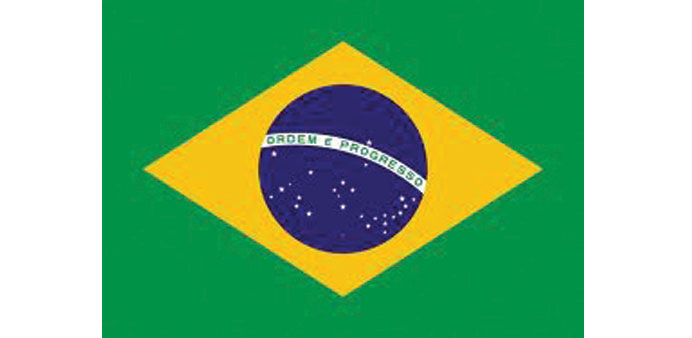Reuters/Brasilia
Brazil has raised interest rates to a nine-year high, but signaled it was ending one of the world’s most aggressive tightening cycles despite fears that a weakening local currency could stoke already high inflation.
In a unanimous vote, the central bank’s monetary policy committee, known as Copom, hiked the benchmark Selic rate by 50 basis points for a sixth straight time to 14.25%, the highest among the world’s top 10 economies.
The move, which takes the Selic to its highest level since July 2006, was expected by a majority of economists and traders.
In its decision statement, the bank clearly signalled it will halt the monetary tightening and keep rates on hold for some time as an imminent recession hampers consumer spending.
“The committee understands that maintaining the benchmark interest rate at that level, for a sufficiently prolonged period, is needed to ensure that inflation converges to the target by the end of 2016,” the bank said.
In an unusual move, international affairs director Tony Volpon abstained from voting. He was the focus of controversy after declaring he intended to vote for more hikes until inflation expectations were anchored.
Before the meeting the central bank came under pressure to press ahead with the rate-hiking cycle started in October as President Dilma Rousseff drastically cut her government’s fiscal savings target, sparking a sell-off in local currency markets that will likely fuel inflation.
Standard & Poor’s threat on Tuesday to strip Brazil of its investment-grade rating also raised pressure on the bank to hike rates.
“It’s mission accomplished for the central bank,” said Bruno Rovai, an economist with Barclays. “They were ahead of the curve so far this year. Their credibility has recovered already.”
The central bank put its reputation on the line with promises to halve inflation to the 4.5% official target by the end of 2016.
A weaker real, which slid nearly 7% so far this month, complicates the bank’s job as it increases the value of imports, fueling inflation that at 9.25% stands at the highest in 12 years.
“If they don’t meet the target next year nobody will criticise them,” said Alberto Ramos, an economist with Goldman Sachs. “They understood the economy was so weak they were risking overdoing it.”
Many market observers interpreted the lower fiscal targets as a sign the government will not cut spending as aggressively, which would not help the central bank rein in inflationary pressures.
It also put into question the influence of Finance Minister Joaquim Levy who until recently was seen by Wall Street as the dominant force behind the administration’s shift to more market-friendly policies.
The central bank has contributed to that policy shift with a relentless tightening cycle aimed at restoring the confidence of investors.

